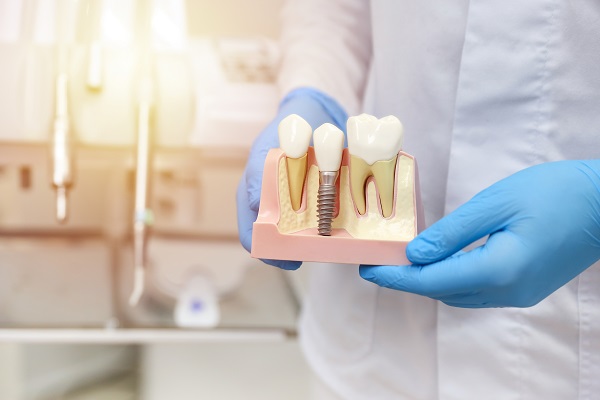Bone Graft Procedure for Dental Implants

Bone grafts for dental implants sound scary when you say it aloud, but what does it mean? Patients need bone grafts to artificially strengthen the tooth insertions on the jawbone so that dentists can make a durable implant location. This article will discuss what a bone graft is and the various details that should be considered before receiving a bone graft.
What is a bone graft?
A bone graft for implants is a procedure where a dental practitioner takes tissue (typically from a more robust structure on the patient’s body, like the chin or any other large bone in the body) and inserts it onto the site of a tooth so that it can reinforce the socket and provide an ideal condition for the procedure of placing an implant.
This procedure is common not only for those wanting implants but also for those patients that need additional reinforcements to their jawbone because of aging and trauma.
How long does a bone graft take to heal?
While the patient will probably feel back to normal in a couple of weeks, a bone graft typically takes anywhere from three to nine weeks to heal fully and properly. There are two kinds of bone tissue in the body. The outer layer is the hard calcified layer that everyone thinks of when they picture a bone in their minds. The second layer is beneath the outer layer and provides repairs and blood supply to the outer calcified layer of bone.
When a bone graft takes place, dentists take from the second layer of bone tissue, the softer underlayer, to augment the site of the potential implant. This layer needs to be allowed the proper amount of time to harden and calcify fully. If the patient were to undergo the procedure of a dental implant without first letting the bone graft fully heal, the patient runs the risk of having an unstable implant or having an unsuccessful procedure.
Will I need a bone graft?
Bone grafts are becoming more and more common– with over 50% of people receiving dental implants in need of a bone graft. This is partly because the types of patients that are typical candidates for bone grafts for implants are aging and experiencing a general level of bone tissue loss. If you are a younger person that is a candidate for a dental implant because of another reason, you may not need a bone graft.
Speak with your dentist
Getting a bone graft can sound scary if you don’t know what it entails, but if you want a successful emplacement of your dental implant, it is imperative that you have the most reinforced spots possible– suitable homes, if you will for your new teeth. It is also important that you talk to your dentist and get the full picture if you have any concerns or reservations about bone grafts for dental implants.
Request an appointment here: https://www.vidadental.com or call VidaDental: Kenia Cuevas, DDS at (305) 230-4487 for an appointment in our Doral office.
Check out what others are saying about our dental services on Yelp: Dental Implants in Doral, FL.
Related Posts
A dental implant restoration can replace a missing tooth that falls out naturally, gets knocked out or is extracted. A dental implant restoration is often recommended after tooth extraction, as it prevents bone loss from occurring and offers cosmetic and functional benefits. There are several ways to replace a missing tooth after an extraction, including with…
Dental implants are one of the most effective and innovative methods of tooth replacement. Dental implants can experience their own problems such as failure, but it is quite unlikely. Thankfully, there are ways to prevent implant failure. Although dental implants rarely fail, it is possible. Being aware of how dental implants fail may help one…
If you’ve lost a tooth, odds are you’ve at least looked into dental implants. They are one of the most popular alternatives to dentures or bridges. They are sturdier, more pleasant to look at, more pleasant to deal with, and have a tremendous success rate.However, there is a bit of a time commitment. You’ll need…
Your cosmetic dentist can improve your smile with specific techniques. Assessing the issue comes first. Discussing the treatment options will follow. Here are the details on how a cosmetic dentist can rejuvenate your smile.A stunning smile comes with good functionality. The cosmetic dentist will focus on improving the appearance of one’s smile, but at the…
